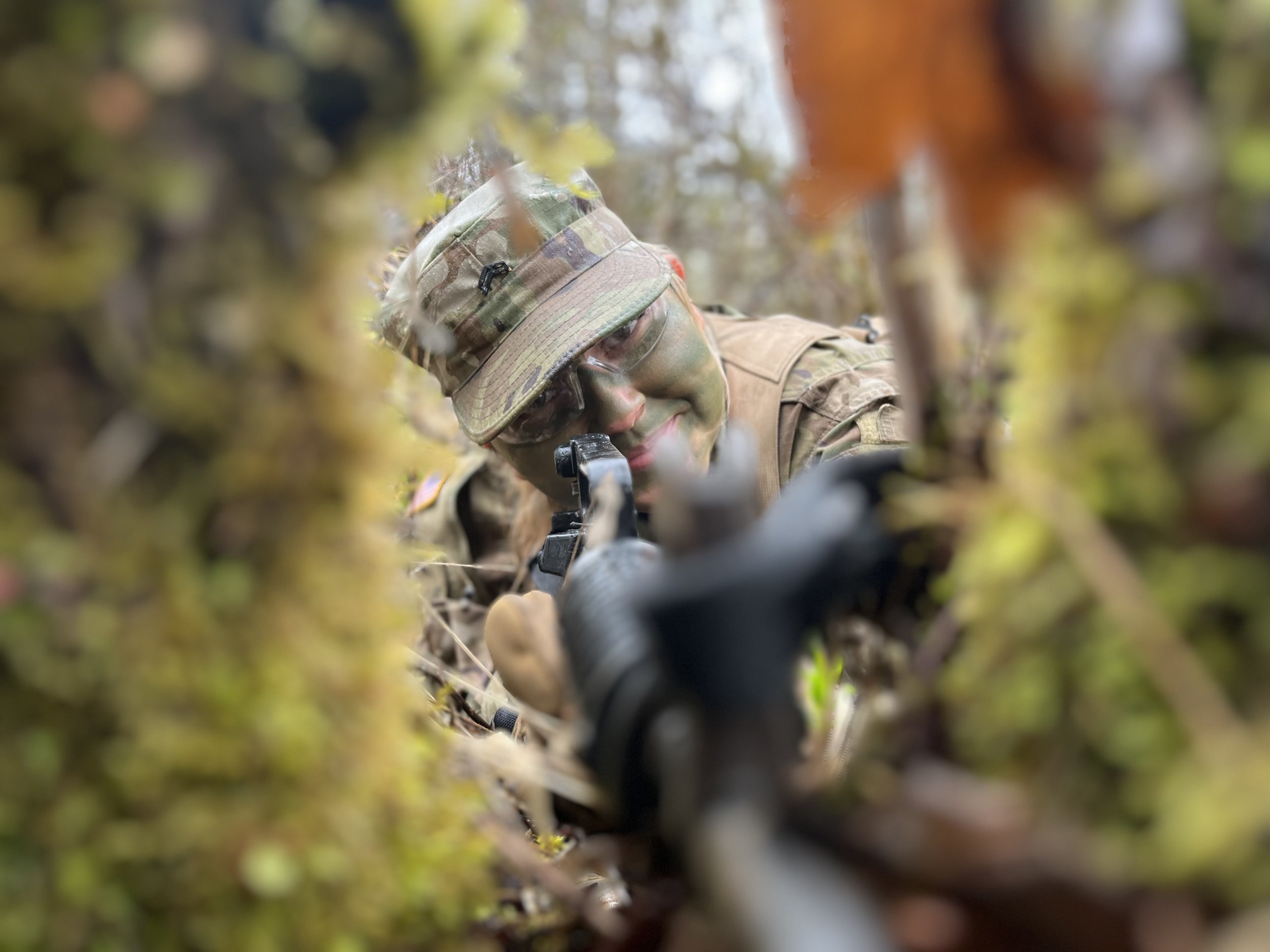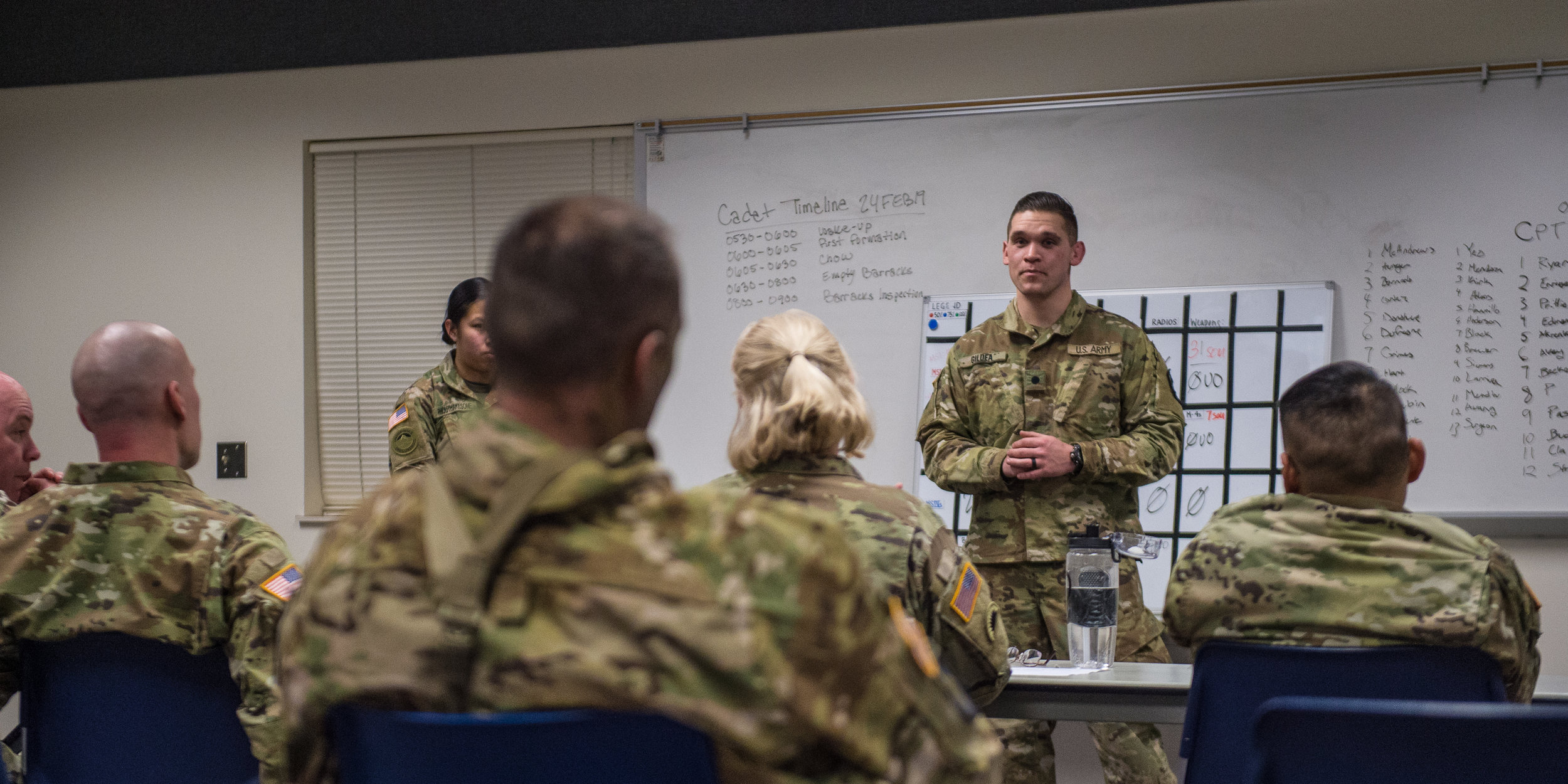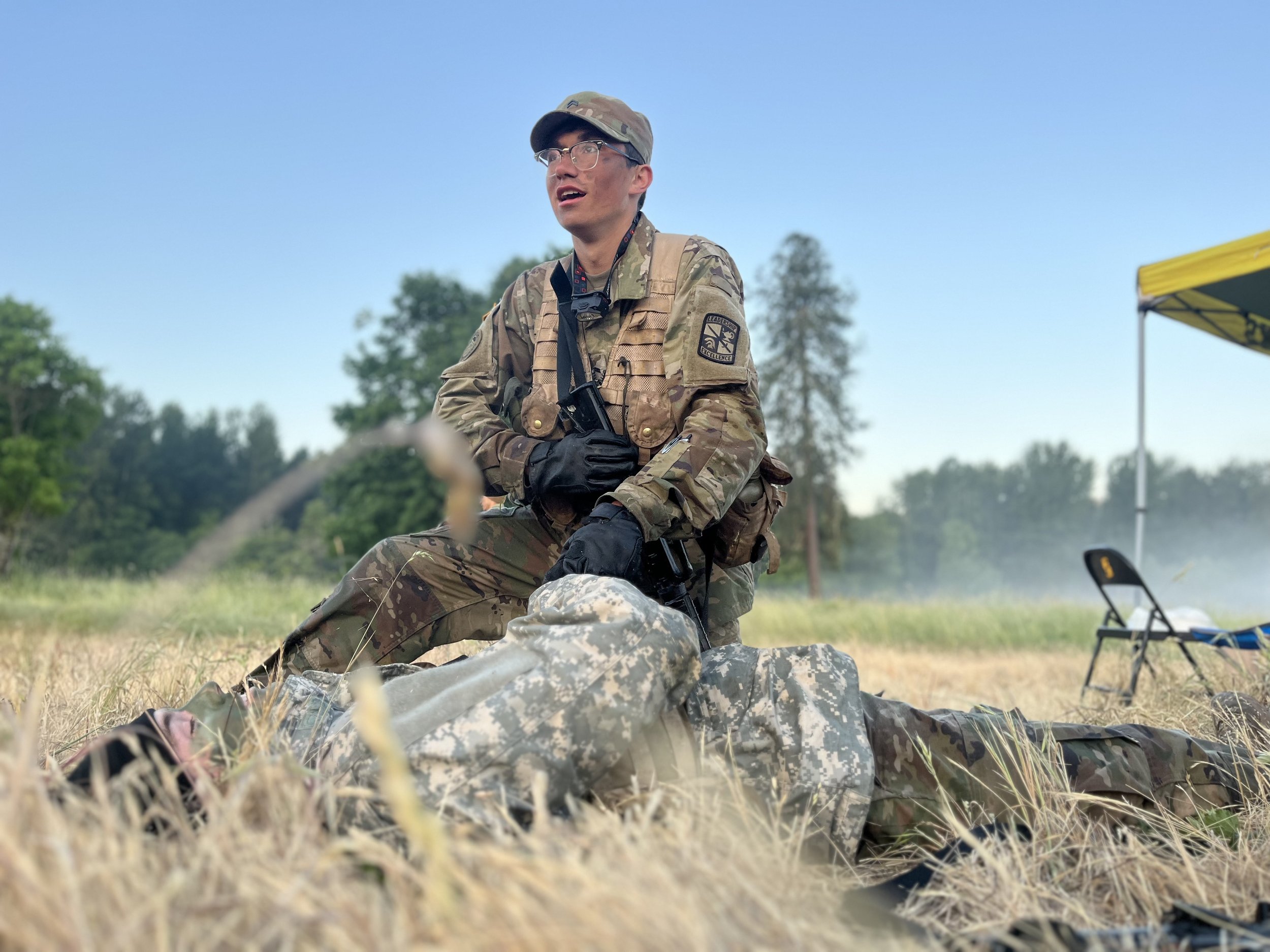
Curriculum
The Department of Military Science, an instructional department that reports to the vice provost for academic affairs, offers four years of military science courses, lower and upper division. The 300 and 400-level courses are open to contracted ROTC cadets pursuing commissions as officers in the United States Army. The 100 and 200-level courses are open to interested students.
The curriculum is an interdisciplinary course of study designed to meet the following objectives:
Provide opportunities to learn and practice leadership styles, dimensions, and techniques.
Provide an understanding of the historical role of the Army and how that role supports the goals and objectives of national policy.
Develop and improve communication skills using practical oral and written exercises.
Develop an understanding of the professional military ethic.
Provide general knowledge of the structure of the Army, its organization, and how its various components work together.
Provide an understanding of American military history and the leadership principles that caused military leaders to succeed or fail.
MILITARY SCIENCE COURSE LIST
See what Courses are offered below

Lower Division
Lower-division (100- and 200-level) courses are offered for 1 or 2 credits each. The 100-level courses are offered to freshmen. The 200-level courses are offered to sophomores and upperclassmen. These courses provide the basic framework of knowledge and emphasize basic military terms, leadership, organization, and military history.
MILITARY SCIENCE I
MIL 121:
Constitutional beginnings, organization, and role of today’s army; physical fitness; introduction to equipment and small-unit operations. (2 Credits)
MIL 122:
Operational and survival skills, essentials of topographic map reading and land navigation, first-aid, small-unit tactics, and practical exercises with Army weapons and equipment. (2 Credits)
MIL 123:
Characteristics and methods of successful leadership–building trust, understanding, cooperation, and communication; responsibilities of leadership including personal motivation and ethics. (2 Credits)
LEADERSHIP LAB
MIL 191:
Laboratory for practical experience. Assesses Cadet leadership potential, problem solving, communication, and decision-making skills. One field-training exercise a term. (1 credit)
Prereq: Those who enroll must be contracted Cadets or Cadets eligible for contracting in ROTC who have either initiated the process of contracting or have received approval from the professor of military science.
Repeatable five times for a maximum of 6 credits.
PHYSICAL TRAINING
MIL 131:
Participatory physical training program that follows the U.S. Army’s physical fitness program. Prepares students for the rigors of military activities through a systematic physical conditioning program. (1 Credit)
Repeatable six times for a maximum of 6 credits.
MILITARY SCIENCE II
MIL 221:
Basic leadership and technical military skills, including map reading, first aid, and communication skills. Focuses on developing individual abilities and building effective teams. (2 credits)
MIL 222:
Examines purpose, roles, and obligations of commissioned officers; organizational values and their application to the decision-making process; military tactics in small-unit operations. (2 Credits)
MIL 223:
Self and team development in Army operations; comprehension and use of the five-paragraph Operations Order; tactics; land navigation. (2 Credits)
Upper Division
Upper-division (300 and 400-level) courses are offered for 4 credits each. These courses are offered only to contracted Cadets, or those in the process of contracting, who have completed the two three-course sequences Military Science I (MIL 121, 122, 123) and II (MIL 221, 222, 223). They provide the leadership, decision-making, communication, ethics, and tactical education to prepare the student to become a commissioned officer in the U.S. Army.
MILITARY SCIENCE III
MIL 321:
Teaches the sixteen leadership dimensions and applications to infantry tactics, operation orders, and orienteering. (4 Credits)
MIL 322:
Strengthens individual abilities with experience in marksmanship, drill, and tactics. (4 Credits)
MIL 323:
Evaluates leadership abilities in tactical and non-tactical settings. (4 Credits)
PHYSICAL TRAINING
MIL 331:
Emphasizes physical fitness and overall good health. Focus is on the intensity, duration, and frequency of fitness training, resulting in improved health and physical fitness. (1 Credit)
Repeatable five times for a maximum of 6 credits.
MILITARY SCIENCE IV
MIL 421:
Planning, evaluating, and conducting unit training; practical exercises in planning, coordinating, and executing small unit training. (4 Credits)
MIL 422:
Detailed study of judicial and nonjudicial proceedings and administrative actions available to commanders, procedures for resolving damage to or loss of government property. (4 Credits)
MIL 423:
Duties and responsibilities of a new lieutenant, ethical decision-making, counseling subordinates, writing evaluation reports, and keys to a successful transition to active duty. (4 Credits)
ADDTIONAL COURSE REQUIREMENTS
HIST 340:
Survey of US military history from the colonial period to the present with a focus on the organization, operations, and strategy of the US Army in wartime. (4 Credits)
EXTRACURRICULAR ACTIVITIES
The department supports a variety of events including:

RANGER CHALLENGE
A club sport “Not for the weak of fainthearted”
MARAUDERS
For the Cadets willing to put their knowledge on the line
COLOR GUARD
Presenting the Nation’s colors
INTRAMURAL SPORTS
Football, Basketball, Softball, Dodgeball











